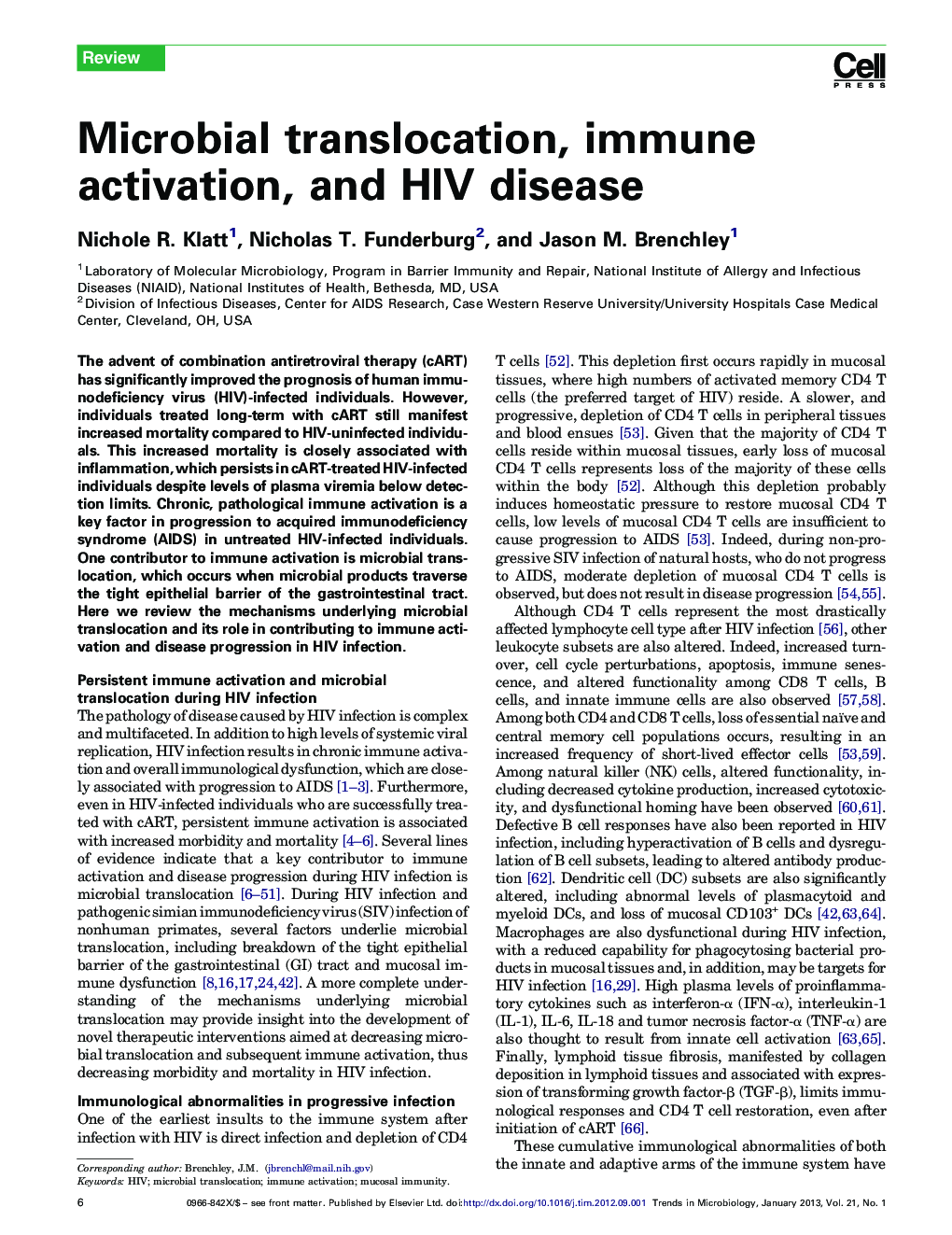| Article ID | Journal | Published Year | Pages | File Type |
|---|---|---|---|---|
| 3422059 | Trends in Microbiology | 2013 | 8 Pages |
The advent of combination antiretroviral therapy (cART) has significantly improved the prognosis of human immunodeficiency virus (HIV)-infected individuals. However, individuals treated long-term with cART still manifest increased mortality compared to HIV-uninfected individuals. This increased mortality is closely associated with inflammation, which persists in cART-treated HIV-infected individuals despite levels of plasma viremia below detection limits. Chronic, pathological immune activation is a key factor in progression to acquired immunodeficiency syndrome (AIDS) in untreated HIV-infected individuals. One contributor to immune activation is microbial translocation, which occurs when microbial products traverse the tight epithelial barrier of the gastrointestinal tract. Here we review the mechanisms underlying microbial translocation and its role in contributing to immune activation and disease progression in HIV infection.
